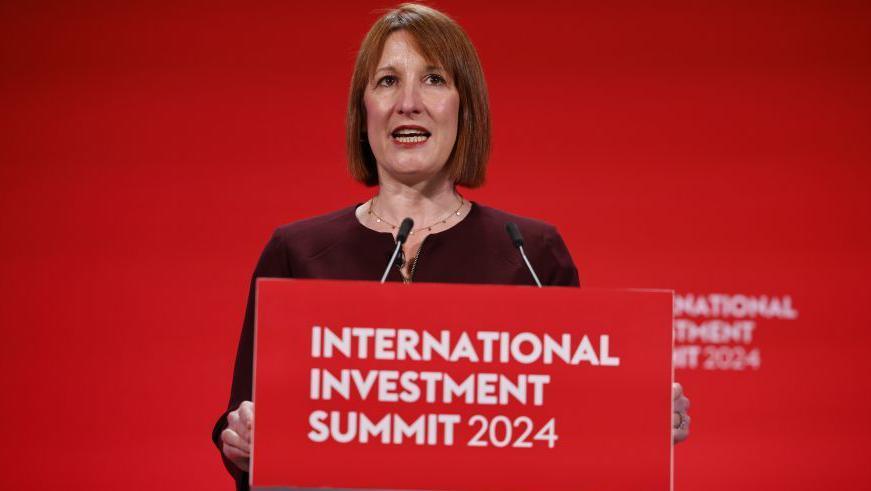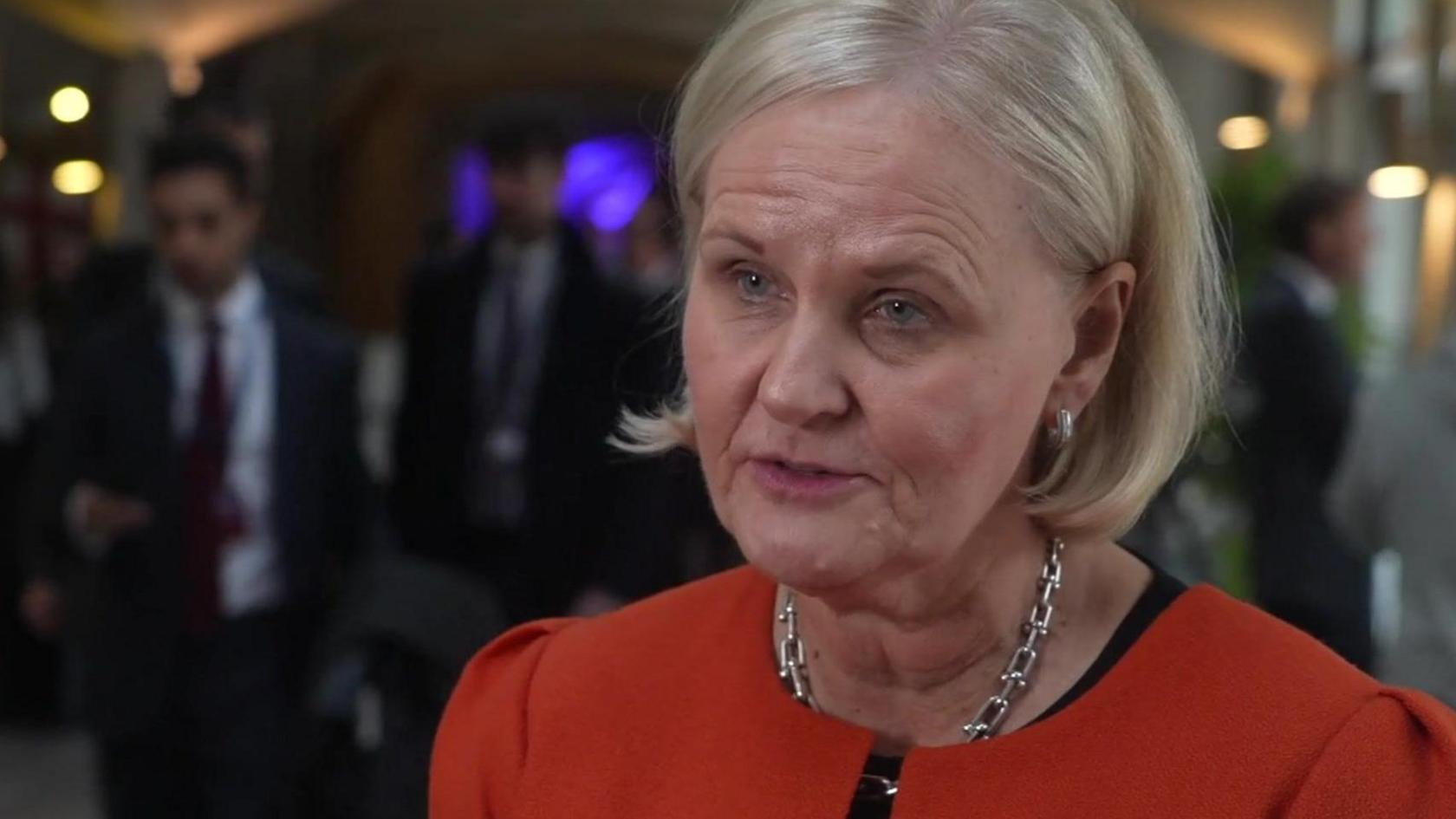Reeves signals hike in National Insurance for firms

- Published
The chancellor has given the clearest signal yet that businesses will face an increase in National Insurance on the day the government announced billions of pounds in overseas investment had been secured.
Rachel Reeves said Labour's election pledge not to increase National Insurance on "working people" related to the employee element, as opposed to the sum paid by employers.
Her comments come as businesses await the new government's economic plans in the Budget later this month.
The government claimed its international investment summit on Monday secured £63bn of private funding for UK projects. However, many of the commitments had already been announced in advance.
While the investment pledges signal a boost for the government, many business leaders are closely watching what taxes will be hiked on 30 October.
Reeves reiterated her Budget would be "tough", but stressed difficult decisions would not put off business investment in the UK because she would offer firms long-term certainty about the levels of taxation they will face.
The government has ruled out increasing VAT, National Insurance or income tax, speculation has grown around the rate of National Insurance paid by employers.
Reeves repeated the pledge not to raise taxes on "working people" - echoing comments from Business Secretary Jonathan Reynolds - but only pledged to cap corporation tax, the levy paid by businesses on profits, at 25% for the next five years.
There is also speculation over a potential rise in Capital Gains Tax, which is charged on profits made from the sale of an asset that has increased in value, such as second homes. However, Prime Minister Sir Keir Starmer told Bloomberg reports suggesting a rise as high as 39% were "wide of the mark", although he did not elaborate further.
The chancellor did hint that she might change the government's borrowing rules to free up billions of pounds more in spending for big projects.
"We do want to free up investment in those long-term responsible investments that we need to make, to unlock the private investment into our economy," she said.
New investment deals
Some of the new investment pledges from firms on Monday include:
£1.1bn cash injection into Stansted Airport by its owner Manchester Airports Group to expand the airport's terminal by a third, creating more than 5,000 jobs
£279m from US pharmaceutical giant Eli Lilly to tackle "significant health challenges", such as obesity
£20bn over the next five years from Australian firm Macquarie towards various infrastructure projects including an electric car charging network. Macquarie has been blamed for saddling Thames Water with unsustainable debts when it was its biggest shareholder
£1bn confirmed by DP World to create 400 new jobs and make London Gateway the UK's largest container port within five years. The commitment had looked to be in jeopardy after Transport Secretary Louise Haigh called on people to "boycott" DP World's subsidiary P&O Ferries over their past treatment of staff - comments which were later rebuked by the prime minister
Was Keir Starmer's investment summit a success?
- Published14 October 2024
Billions pumped into Stansted and London Gateway port
- Published14 October 2024
Port plan to go ahead after row over minister's comments
- Published13 October 2024
Separately on Monday, Sir Keir defended the government's plans to overhaul and increase workers' rights as "pro-growth".
He told the summit he would scrap regulation that "holds back investment" and would ask regulators to prioritise economic growth.
The government's Employment Rights Bill includes proposals that would see people being able to get sick pay from the first day they are ill and claim unpaid parental leave as soon as they start a job.
Most of the planned changes will not take effect for two years, but some business groups are concerned about how they would work in practice and impact hiring.
But Sir Keir said greater security for workers would lead to better growth in the economy.
Former Tory donor John Caudwell, the founder of Phones 4U who came out in favour of Labour ahead of the general election, told the BBC he was "not very keen" on Labour's plans to increase workers' rights, calling them "a real burden on business".
But he said businesses and potential investors, would "swallow the difficulties that come as a result of that extra regulation on employee rights" if the wider goal of growing the economy was met.

Aviva boss Amanda Blanc said speeding up planning rules is vital
Sir Keir also said he wanted to "rip out" bureaucracy obstructing investment in the UK.
Eric Schmidt, the former chief executive of internet giant Google, told Sir Keir at the event that delays to regulation were "killing you".
"I think the business community would much rather have a single person who can say yes or no... and then they can move on," he said.
The head of insurance giant Aviva, Amanda Blanc, said simplifying planning procedures was key.
"We can commit to doing projects but if you can’t get the planning permission you could be sitting with a project for two to three years where you’ve got money ready to go," she said.
The boss of Eli Lilly, David Ricks, who also attended the event, said the UK had to take a "different" approach to attract multinationals given it was no longer part of the EU.
Earlier this month it emerged that the world's richest person, Elon Musk, had not been invited to the investment summit.
But Technology Secretary Peter Kyle said the billionaire would have been "very, very welcome".
"We would love to engage with Elon Musk," Kyle said. "If he opens up an investment programme and there is global competition for it, believe me we will be first in line."